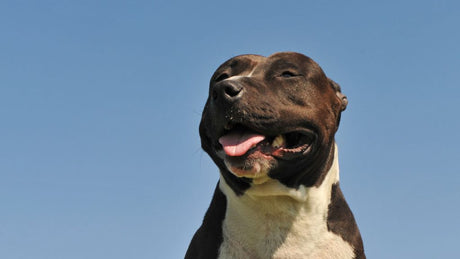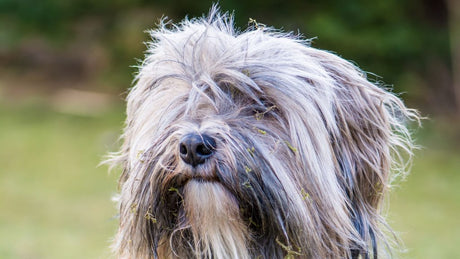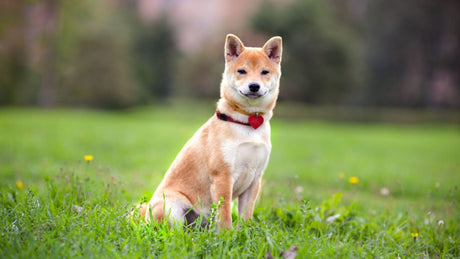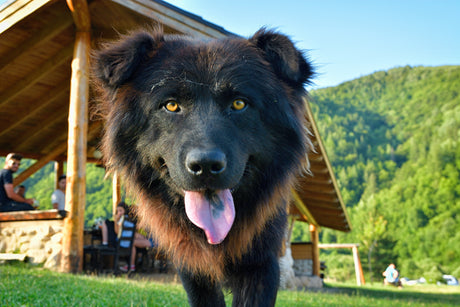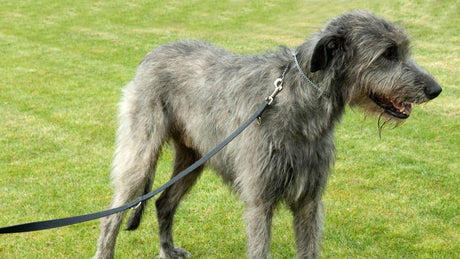If you have a dog, the idea that it could catch the coronavirus surely terrifies you. But to what extent can a dog get COVID-19? The answer may surprise you, but there are known cases. For this reason, you must take extreme precautions and know all the data that exists today: The coronavirus has completely changed our habits and also those of our pets. That is why, if you have a dog, you surely want to take care of it and protect it so that nothing bad happens to it. This is all you need to know:
It is dangerous?
First of all, is COVID-19 dangerous for dogs? Although the incidences of dogs infected with coronavirus are isolated cases, studies indicate that dogs are not very sensitive to the virus. Yes, puppies are at greater risk of suffering from a serious disorder than adults. However, it has also been revealed that the dogs have become infected not because of their outings, but because of their proximity to their owners infected with coronavirus. Likewise, it has been confirmed that people with COVID-19 can infect their pets, but with a very low probability. For now, we have no more information about whether the dogs have had an outbreak of this disease or if they are just carriers. There is no scientific evidence to confirm that dogs transmit the virus to others of the same species or to people. It is unknown. For this reason, extreme precautions must be taken.
Known cases
When it comes to known cases, one study suggested that the first two COVID-19 positive dogs in Hong Kong contracted it from their owners. Despite being the first cases, other dogs such as a Pomeranian and a German shepherd were also infected. Even a cat, four tigers and three lions at the Bronx Zoo in New York tested positive.
recommendations
Although coronavirus in dogs does not seem dangerous, we do not know everything about the virus and we should be extremely concerned. It is important that both the owner and his dog comply with basic hygiene rules:
- Wash your hands regularly
- sneeze with your elbow
- Disinfect shoes and surfaces frequently
- Avoid close contacts without a mask
- Monitor what the dog does on his outings
- Bring the dog on a leash and a bottle of soapy water to clean the urine.
Regarding outings, it is important that they are short and without going too far from the home. Better in your circle. Also, avoid socializing with other animals or people as much as possible, at least until everything calms down a bit. It is also essential to comply with the vaccination schedule to strengthen your immune system, avoid contact with other dogs' feces and also overly frequented places such as parks. By increasing safety precautions, you will be further protecting your faithful canine friend. That is why you should not skimp on this care. Important: do not disinfect the dog's paws after going for a walk. We insist on this point because safety and hygiene measures must be taken as far as possible. But without actually putting hydroalcoholic gel or surface disinfectant on the animal's paws. Keep in mind that it is sensitive and could dry out your skin and cause a skin problem. Do not do it. When in doubt, always consult with your trusted veterinarian.
Symptoms and how to detect it
What symptoms does a dog with possible COVID-19 have?
- Vomiting
- Fever
- Abdominal pain
- Lack of appetite
- Apathy
- Diarrhea
If at any time we notice our dog a little strange, we should take it to a veterinarian so they can do a complete examination. If COVID is possible, it is very likely that the owner will be asked if he or she has had it. If these symptoms are greater, it can be diagnosed in other ways. With a blood or stool test it can be confirmed. For example:
- Gold standard test: allows the virus to be detected with an electron microscope or RT-PCR.
- Measuring the concentration of antibodies in blood.
- Examining the feces.
This is how the presence of the virus in the animal can be detected and confirmed. What if the dog has COVID? To do? Treatment If the dog is diagnosed with possible COVID, it is important that the dog is isolated for the duration of the treatment. How is it treated? Many adult dogs recover on their own, without the need for medication. However, puppies may need some medication to overcome the canine coronavirus. If treatment is followed, it will be symptomatic. We could talk about a replacement of electrolytes and fluids to prevent the dog from becoming dehydrated, in addition to an appetite stimulant or an antiemetic to control vomiting. In addition to an adequate, balanced diet and physical exercise. Recovery time varies depending on the dog. However, even if he gets well, it is a contagious disease and you must follow all the veterinarian's instructions.
How to manage a quarantine with dogs at home?
If you have to be isolated at home or quarantined, it is important that the dog continues to go on its daily outings. Our advice is to ask a neighbor or loved one for help so you can walk the dog. Or even a dog sitter or walker if you have no other option. If you have a garden, it is perfect because you can go out to relieve yourself, get some fresh air and be entertained.
Questions about COVID in dogs?
We hope that this guide on canine coronavirus or COVID-19 in dogs has clarified your doubts. Keep in mind that it is something relatively recent and there is not much data. The important thing is to be very careful, go little by little and take extreme safety measures and take care of your diet. If you have any questions or concerns about how coronavirus affects dogs, use the comments. We hope to help you solve it ;)


